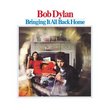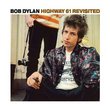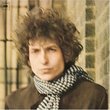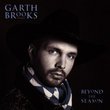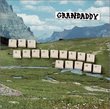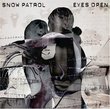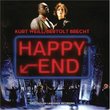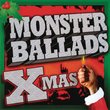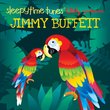| All Artists: Bob Dylan Title: John Wesley Harding (Hybr) Members Wishing: 4 Total Copies: 0 Label: Sony Original Release Date: 1/1/1967 Re-Release Date: 9/16/2003 Album Type: Hybrid SACD - DSD, Original recording reissued, Original recording remastered Genres: Country, Folk, Pop, Rock, Classic Rock Styles: Contemporary Folk, Singer-Songwriters, Blues Rock, Folk Rock, Country Rock, Album-Oriented Rock (AOR) Number of Discs: 1 SwapaCD Credits: 1 UPC: 827969032060 |
Search - Bob Dylan :: John Wesley Harding (Hybr)
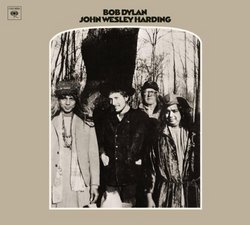 | Bob Dylan John Wesley Harding (Hybr) Genres: Country, Folk, Pop, Rock, Classic Rock
Bob Dylan John Wesley Harding Ranking near the top of anyone's list of Dylan's masterpieces, this post-motorcycle-accident career-turning-point finds Dylan veering from the razor-edged desperation of "All Along the Watcht... more » |
Larger Image |
CD DetailsSynopsis
Album Description Bob Dylan John Wesley Harding Ranking near the top of anyone's list of Dylan's masterpieces, this post-motorcycle-accident career-turning-point finds Dylan veering from the razor-edged desperation of "All Along the Watchtower" to the gentle, back-porch sway of "I'll Be Your Baby Tonight" -- and all points in between. Back at last, in its ultra-rare original mono mix, this landmark LP -- cut with the cream of Nashville's studio cats and generally credited as a blueprint for the era's country-rock movement -- sizzles on Sundazed high-definition vinyl. Similar CDs
Similarly Requested CDs
|
CD ReviewsRobert Allen Zimmerman is my hero Mrs. R. A. Zimmerman | Somewhere Over The Rainbow, Arizona | 05/01/2006 (5 out of 5 stars) "Ah, so much to say about this album. Not so lyrically genius as Highway 61 Revisited or politically consious as earlier stuff like Freewheelin', but definitely one of my favorites. If only for the fact that it has the well known All Along The Watchtower, later recorded by Jimi Hendrix. Possibly my favorite song on it is The Ballad of Frankie Lee and Judas Priest, and although it has few chord changes and is fairly simple, it's a melding of his folky storytelling with his new rock influences while still keeping everything I ever loved about him intact. I also love As I Went Out One Morning for the same reason, plus it has his glorious harmonica on it. Really the whole album is too great for words, although probably not his best overall. And for those people who are commenting on Hardin vs. Harding, I understand that it had more to due with his friend Tim Hardin's last name rather than the outlaw and wanting to make it different than that of Tim Hardin(who by the way is a great musician as well). I'm not quite sure on this story, but there's also a story that the intials JWS have religious significance. Once again, i'm not sure. But on an ending note, I highly recommend that you buy this album if you're a early Dylan fan. I dont think you'll be dissapointed." A Record that is Always New Sara Hackett | from the Darkside | 05/19/2006 (5 out of 5 stars) "I just love this record. A solid rocker with a country flavor. The music is tone down quite a bit from "Blonde on Blonde" but it's still got many songs with a driving beat. The most famous song on JWH has to be "All Along the Watchtower." Jimi Hendrix did such a great job with his cover of that song. Dylan himself, still plays it all the time, changing it as he's always changing himself. "As I Went Out One Morning", is my favorite. Dylan sings about what America as all about and how Tom Paine would be so disappointed if he were around today. That's my read on the song anyway, you may have yours. So many of Dylan's songs are open to different interpretations. My next favorite song is "The Ballad of Frankie Lee and Judas Priest." It seems that Dylan just loves to showcase his humor. There is just so much going on in this record, it's almost impossible to take in. I've been listening to JWH for years and years and it's always fresh and I always seem to be finding something new, a new way to look at one of these songs." JWH invokes an age and atmosphere never seen again on record Mike London | Oxford, UK | 10/10/2007 (4 out of 5 stars) "In the middle of the psychedelic revolution of 1967, Dylan released one of the most shocking albums of his career. Rather than pursuing the whole Summer of Love atmosphere, Dylan turns in a country-rock album that explores enigmatic characters and sounds like nothing before it or released after it. Listening to JWH sounds like listening to songs and stories from the 19th century. The music is simple, and Dylan displays and economy of lyrics, streamlining them for maximum effect. No longer long winding songs, the words Dylan writes for JWH are both simple, to go with the music, but have multiple layers reaching far beyond the simple nature of the music itself, creating a rather beautiful dichotomy between word and music. Like most Dylan albums, JWH requires numerous listens to fully appreciate the art and craft that went into this masterful album. The lyrics are wonderfully complex, invoking the age and spirit of the 19th century, yet still very concise and to the point.
Dylan once again proved no one could touch him in the 1960s. Dylan creates a masterpiece based in rural folklore and a stunning cast of characters who become ineligibly imprinted in your mind. This album is so far away from 1967 it seems unreal, and would prove to be quite a shock for listeners following Dylan's every move. The music has a country flavour, but make no mistake: this is not country music. What this music is, I can't really say, as nothing has really even come close to it. JOHN WESLEY HARDING became an important album in the country rock revolution, and that is perhaps the best way to describe it. However, to only call it Country Rock would be a disservice to this spectacular album. NASHVILLE SKYLINE is straight country and no mistake. This, however, is Dylan taking the atmosphere of the 19th century and recasting it in musical form. On no other album has Dylan, or anyone that I know of, so successfully captured an entirely "otherness" atmosphere that roots itself in the past so successfully that you would actually think it is an artifact of that which its music is about. This album transports you back into the 19th century. One of Dylan's most revealing albums, JOHN WESLEY HARDING, as most of Dylan's albums, are more fully appreciated when taken in context of the time period in which it was recorded and its relationship to Dylan's other LPs. To give a brief history recap, psychedelic songs were the major movement going on at the time. Dylan himself had been covering some wild material on his electric trilogy, creating some of the most memorable excursions into surreal territory that rock has ever produced. Bob Dylan was leading everybody else into a bold new place artistically. Then something happened. To put it accurately, a motorcycle accident happened. And something else happened. Dylan, who had such a prominent place in this movement, was suddenly gone. No one really knew what happened. Dylan holed himself up with The Band at Big Pink and began jamming daily, forging the now legendary Basement Tape sessions, of which the majority still remains unreleased. Yet officially no word came from the Dylan camp, save in the form of a very skimpy "Greatest Hits" collection. Then, in 1966 and 1967, the musical world and culture of the youth became enveloped in what is now referred to post mortem and the "psychedelic" era. Heavily influenced by drugs and mind bending circumstances, most rock bands moved away from blues and folk and instead turned out wild, celebratory music not easy to classify, with trippy album covers. Most people were in all likelihood expecting a similar musical direction from Dylan, as his three previous albums were surrealistic masterpieces themselves. Then, Dec 27, 1967, this album quietly went out into the stores. Following BLONDE ON BLONDE, this album blew most people out of the water. Not only did Dylan not issue a psychedelic album, he issued something that sounded almost like country. It was almost reactionary, given the musical milieu of the era. Even the evil Rolling Stones did psychedelic material in 1967, and The Beatles, with their epochal SGT. PEPPER release, became the spokespersons for that has been termed as the "Summer of Love," although personally I think that is people mythologising that era. Dylan is too grounded in the American folk tradition to really pursue any other musical path that is not, at least in someway, informed or influenced or at least acknowledges that tradition. Dylan proved himself ahead of his time, yet again. While BOB and HIGHWAY could easily have been 1967 releases, Dylan beat everyone to the punch by a good year and a half to two years. Likewise, rather than pursuing the psychedelic scene (a train Dylan was never really on to begin with), he issued the first record of the newly blooming country rock revolution that would dominate the late 1960s. While Dylan has always been known for his lyrics, based on his seven previous albums when this was released, especially the last three (BIABH, HW 61, BOB), here the lyrics are a vast departure from anything he had done before. The lyrics hearken us back, as listeners, to a time before rock music, capturing the faith and spirituality of the 19th century settlers and conmen who founded much of the Western Expansion. Lyrically it's even different from the contemporary Basement Tapes sessions, though the closest BT song to JWH would be "Sign on the Cross" from a lyrical standpoint. As for the music in relation to the lyrics, this is arguably the single most successful marriage of Dylan's lyrics and Dylan's music on any album. The sheer density of the lyrics and the woefully understated music helps us get into the universe Dylan is spinning around us in ways that other music could not. The lyrics and the music play off one another in ways no other album I've heard has, let alone a Dylan album. Because of this successful merger, the atmosphere becomes in sync and everything clicks. Another important feature of JWH is the sheer amount of Biblical references contained in the lyrics. Predating his conversion by more than a decade, this album clearly demonstrates Dylan was not only familiar with the Bible, but relied heavily upon it when crafting his art. Over the span of the 38 minute running time there are over sixty Biblical allusions, and a staggering 15 in "Ballad of Frankee Lee and Judas Priest" alone. The language and morality of the King James Bible heavily informs the album's moral center and outlook on life. As a result, the sum becomes greater than its parts. Taken out of historical context, this album loses much of its import. If you approach it just as music, then this sounds like it should come from a long ago past. If you approach it without understanding Dylan's history or what was happening at the time, you lose much of the historical importance of this LP. Dylan's back to the basics in instruments predates both The Stones' and The Beatles' return to less psychedelic music. If you take it as just a collection of music, the atmosphere that Dylan cultivates on this record loses its steam and becomes just another album. But if you fully enter into it, you discover that this record has single-handedly created its own genre of which it is the only example (that I know of). You have to take this album as a complete musical piece. Album for album, this could very well be Dylan's most perfectly conceived work. Everything sounds like it belongs here, and there is a lyrical unity that ties the songs together thematically that even his famed 1960s electric trilogy cannot boast. While I listen to his other albums more, without a doubt JWH is the most album-as-an-album-oriented of all his releases. Bottom line: one of rock's most mysterious albums, taking you to an entire other era that no one in living memory can begin to describe. You'll never find another album like it, as I fear there's too much distance between us and that time and musically this culture is devolving instead of evolving. Mike London P. S. Taken alone, I think "Knockin' On Heaven's Door," and "All Along the Watchtower," two songs I always think of as companion texts, are covered better elsewhere. Even though Dylan penned it, Hendrix made "All Along the Watchtower" a Hendrix song. Dylan has performed this song the most in concert of all his songs (even more than Like a Rollin Stone), and ever since Hendrix released his version, Dylan has been playing the song using Hendrix's arrangement, rather than the arrangement found on JWH. Taken side by side, I still prefer Hendrix's. Taken in the context of the album, however, "All Along the Watchtower," is just as important as the rest of this collection because it adds to that dark, ragged, rough-n-tumble atmosphere Dylan is creating. P. P. S. My personal favorite is "The Ballad of Frankie Lee and Judas Priest," which is the longest track here. Another fact to note is this album started a trend that bottomed out on NASHVILLE SKYLINE and would only be abandoned at BLOOD ON THE TRACKS. Dylan's LPs, previously running about 50 minutes, would scale back to 35 to 39 minutes and would even go down to 27 minutes with NASHVILLE. The one exception during this period is the notorious SELF-PORTRAIT, but Dylan has a reason for that. " |

 Track Listings (12) - Disc #1
Track Listings (12) - Disc #1